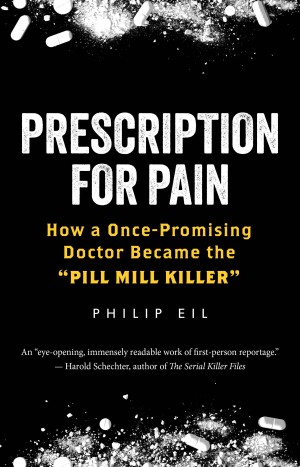Something was wrong with Peter. His ex-wife, Eilene, saw the dramatic weight loss, jaundiced skin, exhaustion, flu-like sickness. His behavior was erratic, his thinking nonsensical. Eilene assumed it was due to stress from his job as a senior partner at a prominent law firm. What she didn’t realize was that he was struggling with a serious drug addiction, one that would ultimately kill him. The reasons Eilene married a man like Peter (depressed, emotionally distant) has much to do with an early lack of confidence. Growing up Jewish in a largely Irish and Italian Catholic neighborhood, she was one of just a few Jewish kids in her public school and always felt like “an ugly outsider.” In junior high, someone painted the word “Jew” in red on her locker. Later in life, she lacked the confidence to question Peter, to push back, and instead watched him ostensibly killing himself in plain sight. Smacked tells Eilene’s story, Peter’s story, and the larger story of the ways white-collar competition and ambition are driving addiction and unhappiness.

Nonfiction
Smacked: A Story of White-Collar Ambition, Addiction, and Tragedy
September 1, 2019
Discussion Questions
- What aspects of Eilene’s story — her marriage, divorce, Peter’s decline and illness — could you relate to? Why?
- Why do you think the author chose to tell this story?
- Do you feel part of the reason to tell it was to bring an issue (or several issues) into public awareness? If so, did your opinion about addiction, the pressures of a white-collar life, drug use and abuse in society, consumption…change or evolve in some way?
- Discuss Peter’s choices — including his career choice, his infidelity and his drug use. What may have been behind them? Do you think the pressures of Big Law life and family responsibilities were largely responsible for his struggle with addiction? Or do you think that struggle has to do with issues beyond that?
- Smacked is more than a story of addiction, there is a theme of mindless overconsumption too. How do you interpret the large amount of Peter’s possessions, especially when some of the items were unopened and others in duplicate?
- What do you think Peter’s house meant to him? What was its significance to Eilene? Why was she so nervous about seeing it for the first time?
- Do you agree with Eilene’s decision to tell her children the truth about their father’s death? Do you agree with the timing?
- How did trying to keep secret the true circumstances of Peter’s death affect Eilene?
- Were you surprised when the medical examiner, Angela, tells Eilene that overdose deaths among “wealthy high-powered executives” was becoming more common? Can you think of why that might be the case? Before reading this book, what was your image of an “addict?”
- In her chapter “Better Living With Chemistry” the author puts forth her concern about young adults, who are under enormous pressure to succeed at a time when drugs of all kinds are increasingly accessible. Is the author overly concerned, in your opinion? How do you view this evolving situation?
- It’s widely accepted that addiction is a disease, caused both by the environment and genetics. Knowing this, was Eilene’s anger at Peter, caused by her belief that at one point, before he was addicted, he made a conscious choice to use, understandable? Or is the consciousness of that choice debatable?
- Did the structure of the book — its organization — serve the narrative? Although the reader knows there is a death from the outset of the story, did the structure and writing keep you engaged?
- Near the end of the book is a quote from psychiatrist Judd Brewer who said, “People like Peter think, ‘just this much more and then I’ll be happy.’ But it will never be enough. The problem is that we are not comfortable with ourselves, with being ourselves.” Do you agree or disagree with Brewer?
- Was there anything especially surprising to you about Eilene’s story? Did the book change your opinion or perspective about addiction?
Courtesy of Eilene Zimmerman

Jewish literature inspires, enriches, and educates the community.
Help support the Jewish Book Council.


